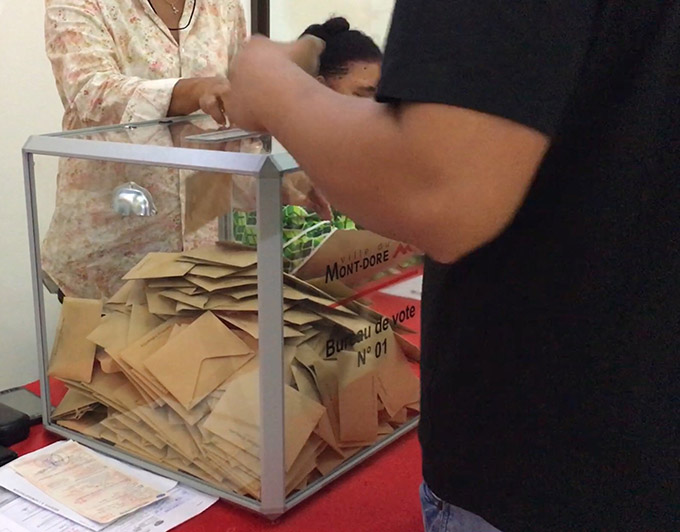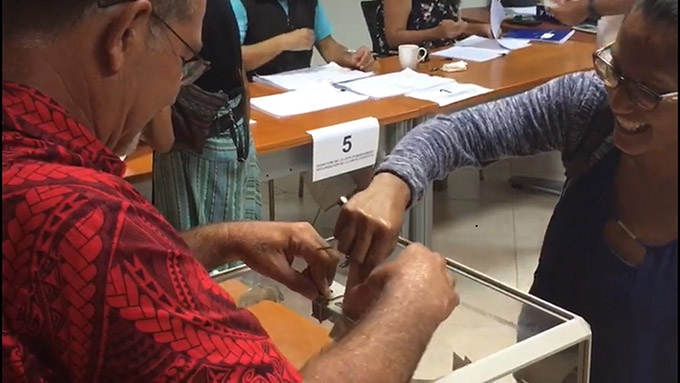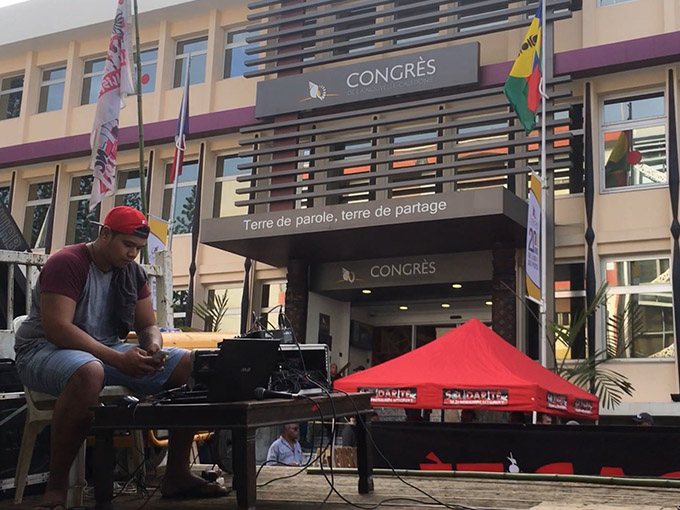
By Duke Menango in Noumea
The provincial elections last Sunday have shaken the political landscape in New Caledonia with an upheaval in the Southern province that will influence developments leading up to the next two referendums on independence.
The poll results – especially in the most populated Southern province – have stunned the Pacific territory for three reasons:
READ MORE: Kanaky independence campaign rolls on … encouraged by ballot result
• After three terms and 15 years in power, Caledonia Ensemble and its emblematic leader Phillipe Gomès have lost heavily in the South – and also their majority in the legislative Congress.
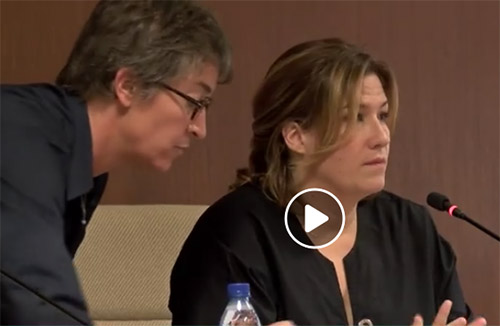
• The anti-independence leader Sonia Backès and her new l’Avenir en Confiance (Future with Confidence) coalition have won by a landslide in the South and yesterday she was elected president of her province.
• A Polynesian political party, L‘Éveil Océanien (Oceania Awakening), emerged for the first time, supported by the Wallis and Futuna community, and by winning three seats in the Congress it now holds the balance of power.
The turnout was far lower than the historic referendum on independence last November, barely reaching 60 percent.
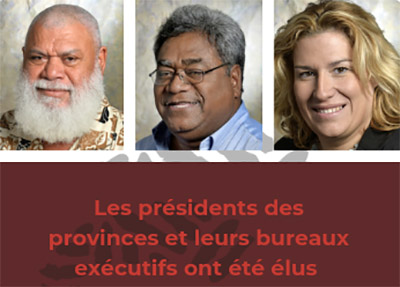
The right-wing 43-year-old Backès ran a campaign by criticising the previously entrenched Caledonia Ensemble (Caledonia Together) and promoting strong anti-independence and security views.
Independence opposed
When Caledonia Ensemble proposed negotiations and talks with the pro-independence groups, Backès and her coalition opposed any notion of independence.
Her coalition won more than 28,000 votes out of 72,000 in the Southern province. That won it 16 seats out of the 32 seats dedicated to the South province in the 54-seat Congress.
Caledonie Ensemble gained 7 seats, the pro-independence FNKS 7 seats and Eveil Oceanien 3 seats.
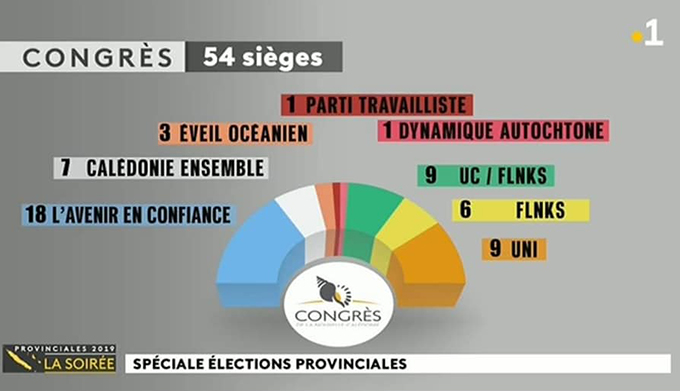
Eveil Oceanien were regarded as outsiders, completely unknown in political life and now the party is going to play a balancing act between pro and anti-independence blocs – and also within the new anti-independence bloc.
Yesterday’s election of Sonia Backès as the new president of the Southefn province after two voting rounds highlighted that role.
In the Northern province, the charismatic President Paul Neoutyine keeps the majority and his presidency.
However, as in 2014, the race between his Union National (UNI) list for independence and another major pro-independence party, Union Caledonienne-FLNKS, was tight.
Uni won in North
In the end, out of the 15 seats dedicated to the Northern province in the Congress, Uni won 7 seats, UC-FLNKS 6 seats and 2 went to the non-independence Agissons Pour Le Nord.
In the Loyalty Islands province, once again the participation rate was low. Many people did not turn out to cast their ballots resulting to a 66 percent participation rate.
Also many Islands province voters have moved to the Southern province for work.
The voters retained UC-FLNKS in power.
Yesterday, its representative Jacques Lalie was elected as the provincial president.
Out of the 7 Congress seats allocated to this province. UC-FLNKS won 3 seats, the challengers Palika made significant progress to gain 2 seats, the Labour party won 1 seat and so did Omeyra Nisseline for her Liberation Kanak Socialiste party.
Despite just her first appearance in politics, Nisseline won 1536 votes.
For the voters the choice was difficult as there were 8 lists running for the Island province with 21,000 registered voters – 7 of them being pro-independence.
Slim majority
The majority in the Congress is really slim with 28 anti-independence seats and 26 for independence.
The 3 Oceanian seats are going to play a critical role as New Caledonia shapes up for the next two political referendums in independence next year and in 2022 under the Noumea Accord.
Duke Menango is a journalist for the independent northern-based Caledonia Television. He filed this special report for the Pacific Media Centre.
